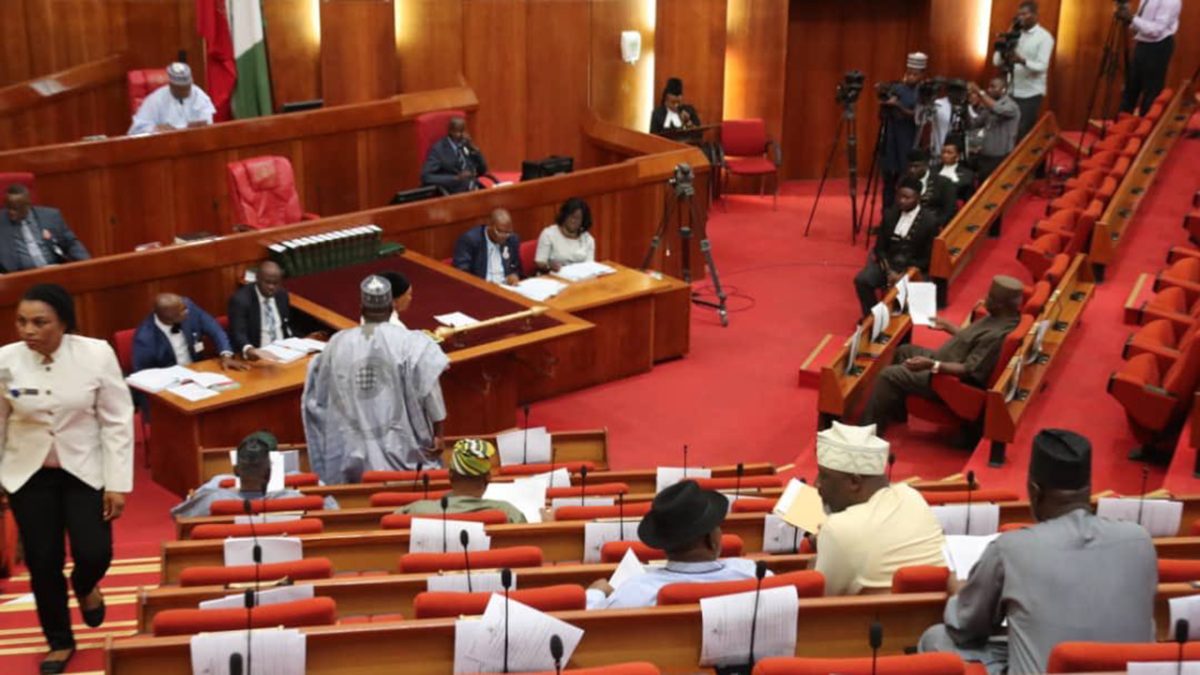![]()
Members of the National Assembly on Monday accused the Steering Committee on the Presidential Compressed Natural Gas Initiative (P-CNGI) of failing to account for the sum of N500 billion.
Senator Jarigbe Agom Jarigbe, the Lead Chairman of the joint Senate and House of Representatives’ Committee on Petroleum Resources (Upstream, Downstream & Gas), made this observation during the 2023 budget performance and 2024 budget defense. He expressed dismay at the paltry sum of N5.8 billion proposed for the Federal Ministry of Petroleum Resources.
Other lawmakers who spoke during the exercise demanded details of the proposed N700 million for the purchase of an unspecified number of vehicles and N200 million for a ministerial retreat. They vowed to hold the two Ministers overseeing the affairs of the Federal Ministry of Petroleum Resources, Nigerian Petroleum Corporation Limited (NNPCL), and other subsidiaries responsible if Nigeria fails to meet its financial obligations.
Senator Jarigbe, frowning at the non-appearance of heads of NNPCL and other subsidiaries at the budget defense, stated, “Once more, we want to state that the NNPCL is wholly owned by the Federal Government of Nigeria, so the National Assembly is empowered under Sections 88 and 89 of the Constitution of the Federal Republic of Nigeria to oversee NNPCL and its subsidiaries.”
Lawmakers also expressed concern about the departure of International Oil Companies (IOCs) to invest in neighboring countries, as well as the unabated oil theft and gas flaring without commensurate efforts to address the challenges.
Senator Jarigbe specifically expressed displeasure over the Federal Government’s failure to allocate funds for the implementation of the CNG Conversion Kits in the 2024 budget proposal for the Federal Ministry of Petroleum Resources.
While noting that the joint committees’ oversight function aims to foster transparency, efficiency, and sustainable development within the Ministry, NNPCL, and its subsidiaries, Senator Jarigbe said, “We are aware that on the 1st of October, 2023, the President of the Federal Republic of Nigeria made a promise to Nigerians in a speech, where he stated unequivocally his resolve to ameliorate the sufferings of the common man by introducing palliatives to cushion the effect of the Subsidy Removal. The Joint-Committee observes with utter dismay the non-provision of those Projects and Palliatives in the 2024 Appropriations Bill, which has been made available to the Joint-Committee.”
In his response, Senator Heineken Lokpobiri affirmed that the IOCs’ decision to divest was a result of the ravaging insecurity in the country, policy inconsistency, among other factors.
While responding to questions on whether the country will be able to meet the 1.7mbpd crude oil production target set for the 2024 fiscal year, considering the drop in the daily production which plummeted to about 1.3mbpd, the Minister assured that the country has the capacity to surpass the 1.7mbpd.
According to him, the daily crude oil production captured in the budget does not include condensate.
He also added that President Bola Ahmed Tinubu had directed the Ministry to resolve the 20-year-old crisis trailing OML 245, which has 9 million barrels of crude oil, as well as other inhibiting challenges.
To this end, the lawmakers, acknowledging the present administration’s ongoing efforts to transition from the use of fossil fuel to the use of natural gas, underscored the need for a proper framework to be deployed through the Ministry of Petroleum Resources, with a transparent budgeting system.
The lawmakers also tasked the Ministers not to allow those parading themselves as masqueraders to hijack the industry, noting that failure to curtail their access may lead to the country failing.





